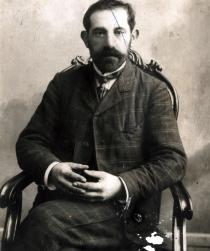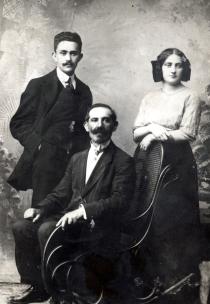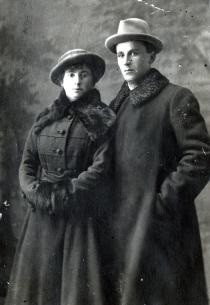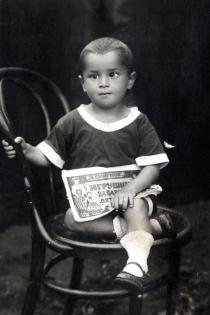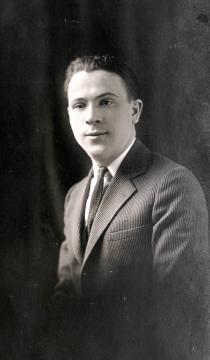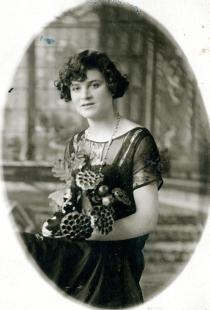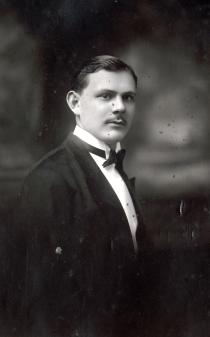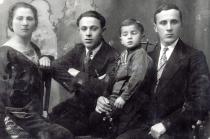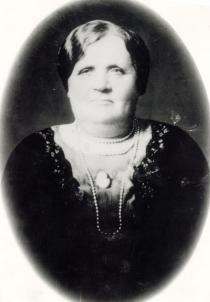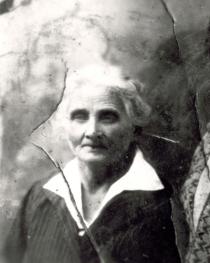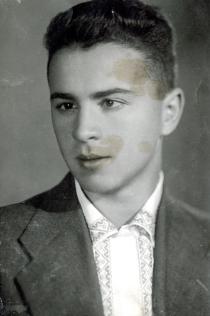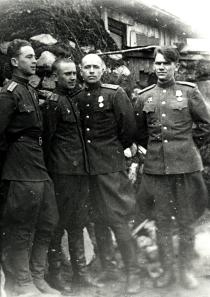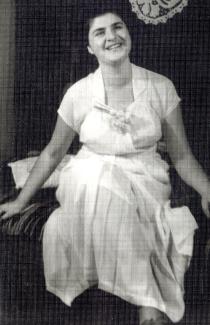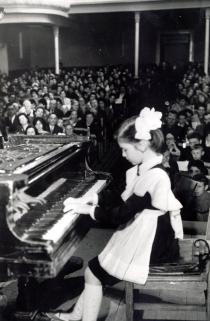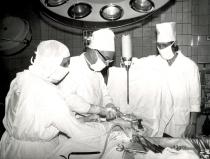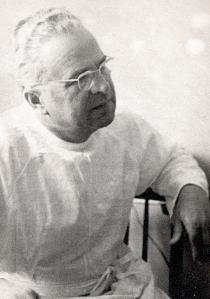This photo pictures my mother, Lisa Goiherg (on the left) seated next to my father's younger brother Zicia, with me, the little boy, seated on my father Iosif Goihberg's lap (on the right). This photo was taken in Yaruga in 1924 on the occasion of Zicia's arrival.
My father's brother Zicia was born in 1903. His father was killed by bandits durint he Civil War in 1918. In 1918, his siblings and mother moved to America. Zicia thought it took too long to obtain all the necessary documentation to move to America. He decided to cross the American-Canadian border illegally. He was arrested and sent back to the Soviet Union. He lived with us until 1928. Later Zicia married a very distant relative who lived in Brazil and left with her. His first job was as a laborer and later he became a distributor of some goods. He was very successful and became a Member of Board of the Savira Company, a garment factory. In the mid-1960s when the 'iron curtain' was removed Zicia visited Kiev. Zicia was eager to see his older brother. He stayed almost two weeks with us. Zicia lives in Rio-de-Janeiro now. He retired at 90 and his daughter and son took over his business. He will turn 100 in 2003. I don't know whether he was religious while living in Brazil.
I was 6 months old when my parents sold their house and moved to my mother's parents home in Yaruga. There, my father bought a vineyard. It was hard work taking care of the vines. But it paid well and provided for my family's living. Besides, the family really enjoyed working with sweet juicy grapes. We lived near my grandmother Blima and Aunt Rachel. My father bought half of a house. We had two rooms: a dining room, a bedroom, and a kitchen. The toilet was in the yard. There were mainly old wooden houses in Yaruga, but our house was made of stone. There were no gardens near the houses. There was a shed near our houses where we kept two horses before the collectivization. I also used to keep rabbits in this shed. My mother bought vegetables and meat from the local Ukrainian farmers - it wasn't kosher. My mother was a wonderful cook. She baked delicious bread.
My mother was a very kind woman. I felt that she wanted to warm up and feed all needy people. My father was also kind and intelligent. He was a very respectable man in Yaruga and people chose him to be a judge in resolving routine disputes.
My parents weren't religious people. They went to synagogue only once or twice a year. I don't remember them praying at home. However, they honored and celebrated the Jewish holidays, the Sabbath in particular. On Fridays my mother cooked Sabbath dinner. We had a nice dinner on Friday, but nobody said a prayer or lit candles. Mother made stuffed fish, chicken broth, cracklings and pastries. She didn't cook on Saturday. She wouldn't even light a fire. My parents didn't work on Saturday. They rested, read books or went to see their friends or relatives. So work on Saturday became my chore. My parents didn't follow the rules strictly and they thought it was all right for me to do it. My mother always invited poor people and visitors to our Sabbath dinners.

